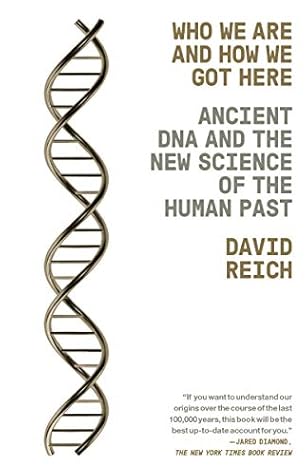engineered mice with the human versions of FOXP2 are identical to regular mice in most respects, but squeak differently, consistent with the idea that these changes affect the formation of sounds.14 These two mutations at FOXP2 cannot have contributed to the changes after fifty thousand years ago, since Neanderthals shared them,15 but Pääbo and his colleagues later identified a third mutation that is found in almost all present-day humans and that affects when and in what cells FOXP2 gets turned into protein. This change is absent in Neanderthals, and thus is a candidate for contributing to
...more
Welcome back. Just a moment while we sign you in to your Goodreads account.


